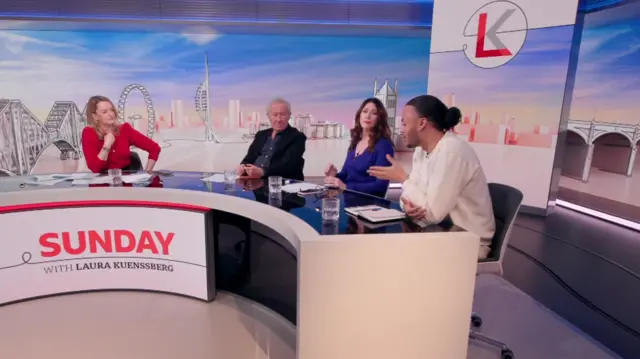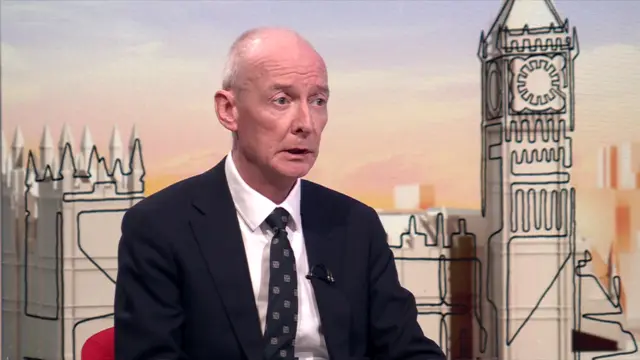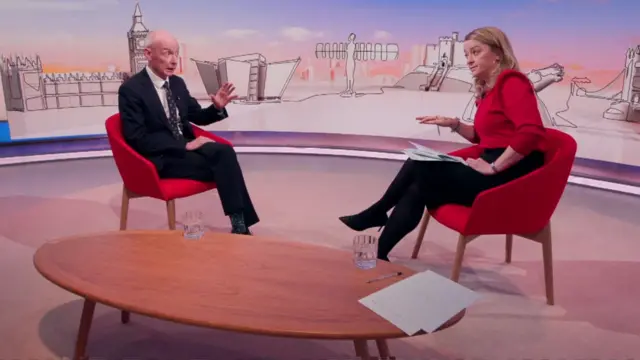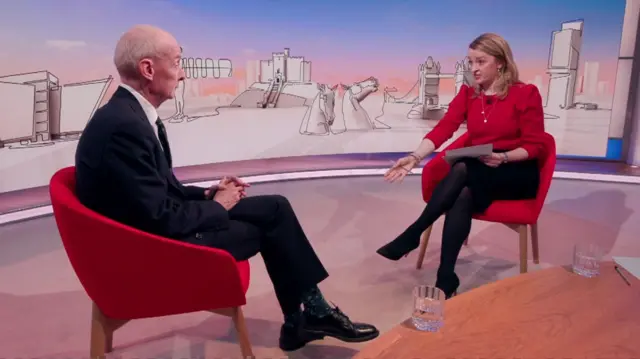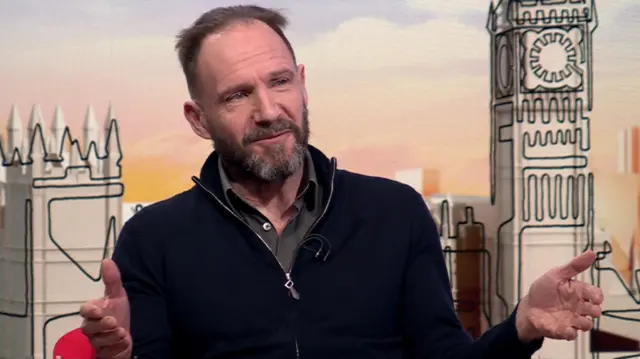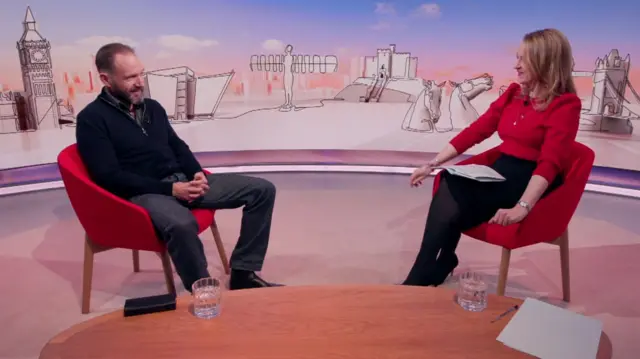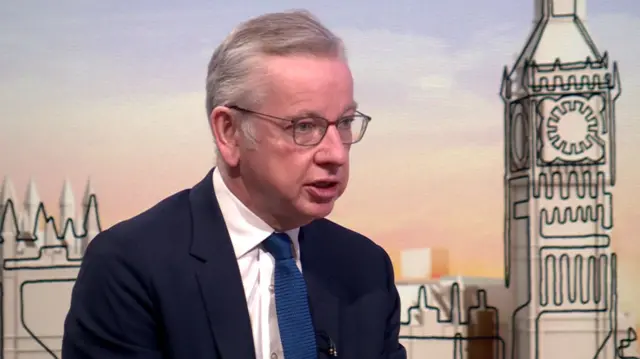See you next Sundaypublished at 11:00 GMT 11 February 2024
 Jack Burgess
Jack Burgess
Live reporter
It was another busy morning on this week's edition of Sunday with Laura Kuenssberg.
A lot was covered, with Housing Secretary Michael Gove, actor and producer Ralph Fiennes, and Labour’s campaign co-ordinator Pat McFadden all having their say.
You can read our story here on Gove's promise that there will be a no-fault eviction ban by the next general election.
We'll be closing this page shortly but before we go there's time for a quick name check.
This page was written by Sam Hancock and Ali Abbas Ahmadi, and edited by me.
We look forward to you joining us next Sunday - same time, same place.
